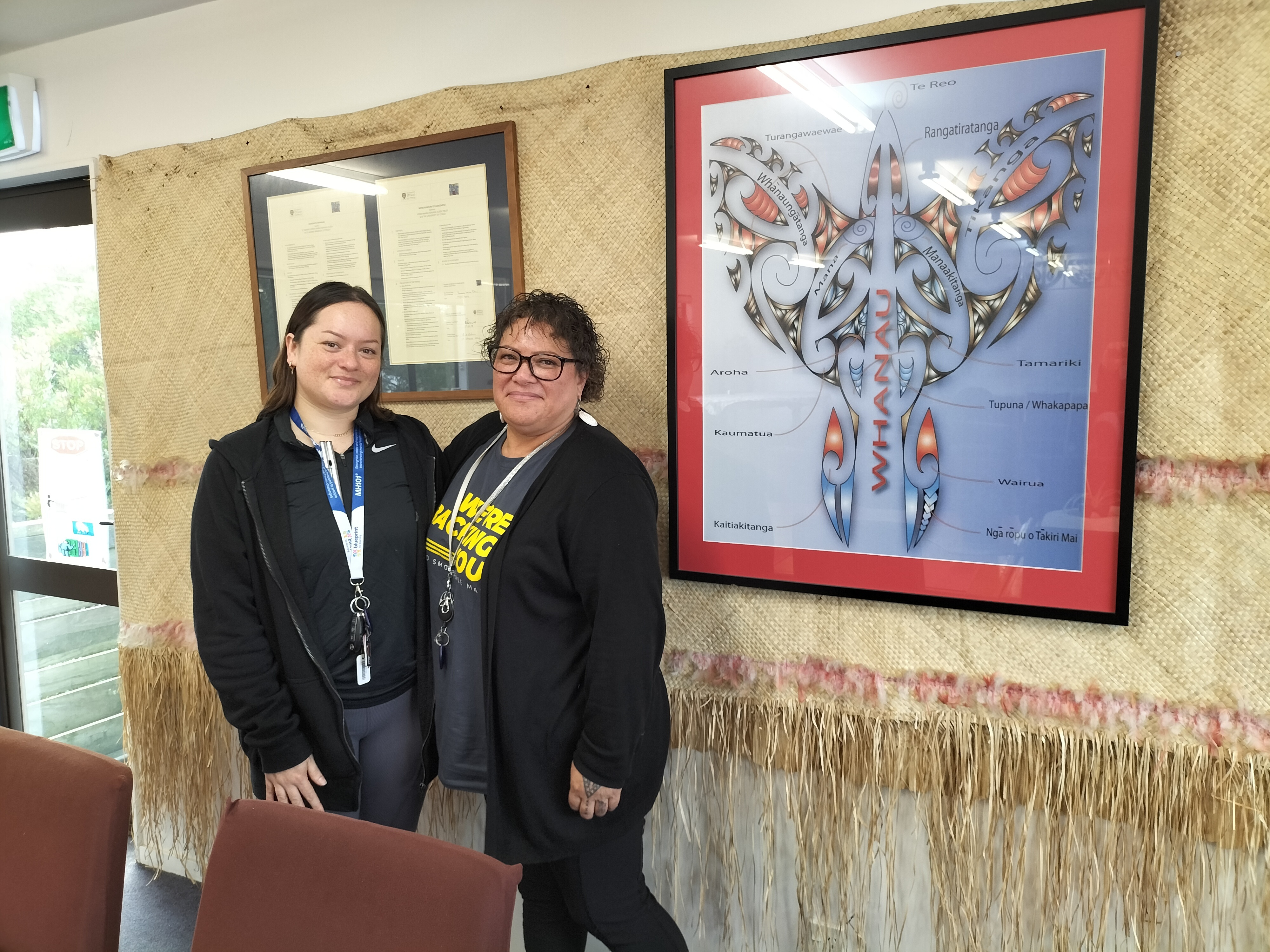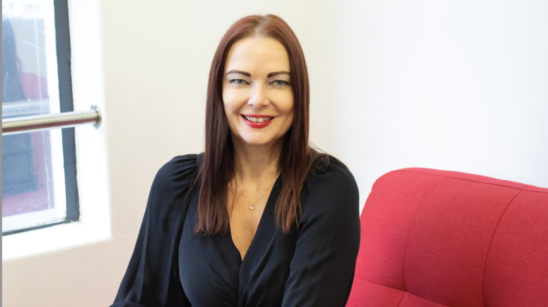What do you do as quit coach practitioners?
Karen: At Takiri Mai te Ata, we run a free, six-week service for anyone who wants to quit smoking. We visit our whānau once a week and supply nicotine replacement therapy like patches, gum or lozenges. The quit coaches help motivate our whānau and understand what triggers them to smoke, then we put a plan in place to help avoid those triggers.
Chelus: I’ve been with the service as a quit coach practitioner for a couple of years and late last year I took over the vaping support role. I work with rangatahi all across Wellington to help with vaping addictions. My youngest client is nine years old, which is just insane. Most of the young ones are referred by school nurses or deputy principals if they’ve been caught vaping at school. It’s not a six-week programme, but it’s at the discretion of the schools how much time I spend with rangatahi.

What works to help people to quit smoking?
Karen: Some people are lucky and they can quit the first time they try, but for others it can take several goes. Our boss here, it took her 18 times to quit, but the 18th time it worked. After the six weeks, we ask our clients if they are confident to continue on themselves. Some are, but others want to re-enrol in the programme. Some people don’t manage to quit, so we know they are not ready yet. We keep them on our files and check in with them at three, six, nine and 12 months to see how they are getting on. The one-on-one part of our service really helps a lot of people. We become like social workers or counsellors, once you build that rapport with clients then everything comes out.
Chelus: We try our best to support and nurture our whānau as much as we can. At the end of the day, even if they don’t quit, we’ve still given them the tools and strategies they need so when they are ready to quit they have somewhere to start.
Do the same tools work to help people quit smoking and vaping?
Chelus: To an extent, but NRT is a last result for rangatahi and it’s not suitable for children under 12. So for kids with a nicotine addiction, there’s really nothing for them. The other big difference is when adults come to us, it’s because they’ve made that decision to quit. But the kids get referred because they’ve got to the point where they can’t even sit in class because of their addiction, but they don’t actually have that desire to quit yet. Vaping has become a way to socialise and connect for some young people. Their friends do it, their family does it, it tastes good and it gives them a headrush and that’s enough for them to continue.
Has vaping changed things for your service?
Karen: We are getting fewer smoking referrals and more vaping referrals. Don’t get me wrong there are still smokers out there, but we are finding if they don’t have smokes then they move to vapes as a cheaper option. We are having to upskill ourselves on vaping and find the time to do research and find resources because there’s nothing out there.
Chelus: Vaping is the unknown. There is not enough research that tells us it's safe. It's hard when we are asked for resources and we too are not given resources and are now creating our own. Rangatahi will always remember the flavour they tasted no matter if they are renamed or not, they find the "head rush" a relief. Vaping has changed things for our service because we are now supporting kids that are in primary school, that have taken up vaping. Also, i've found that vaping is 10 times harder to give up than smoking because of those flavours. When someone quits smoking, down the track if they pick up a smoke it does taste disgusting as if it were their very first. With vaping, it's so easily accessible and it doesn't taste bad, making it easier to fall back into it.
What do you enjoy about your job?
Karen: I love helping whānau. That’s my greatest achievement – and that means Māori, Pacific, any ethnicity – we help anyone who wants to quit.
Chelus: I was a smoker from when I was in Year 9. Looking back, if there had been someone like me now, but more equipped, it would have helped so much. It feels really good to be that someone for the rangatahi I work with.




